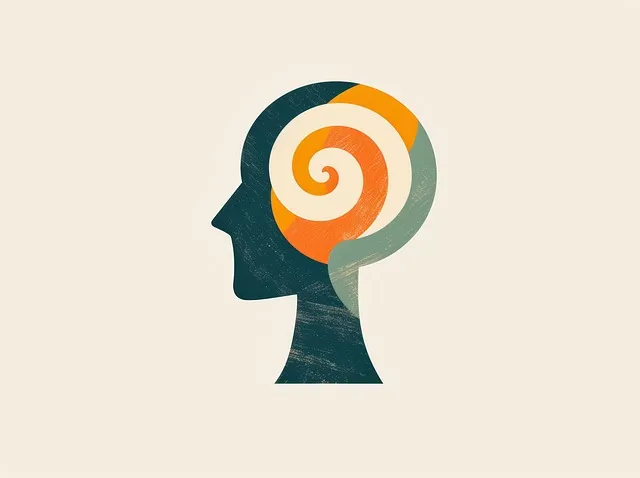The media's portrayal of mental illness significantly impacts public understanding, either promoting awareness and reducing stigma or reinforcing harmful stereotypes. Organizations like Golden Kaiser Mental Health Programs are leading a shift towards more accurate and empathetic depictions in entertainment media. They offer workshops on emotional regulation, therapeutic interventions, and expert collaborations to bridge the gap between media and reality, encouraging diverse storytelling about mental health challenges. By reducing stereotypes and promoting practical insights, media can foster empathy and destigmatization, contributing to open dialogue about anxiety relief and available resources.
Mental illness representation in media significantly impacts public perception and understanding of these conditions. This article explores the challenge of inaccurate portrayals, delving into their profound effects on society’s view of mental health. We identify prevalent stereotypes and misconceptions in current media, highlighting the need for change. One promising solution is the Golden Kaiser Mental Health Programs, offering a comprehensive approach to promoting accurate and empathetic depictions. Additionally, we provide strategies to encourage positive, realistic mental illness representation in media, fostering a more informed and compassionate public.
- Understanding the Impact of Media Portrayal on Mental Health Perception
- Identifying Stereotypes and Misconceptions: The Current State of Media Representation
- Golden Kaiser Mental Health Programs: A Potential Solution to Promoting Accurate Depictions
- Strategies for Encouraging Positive and Realistic Mental Illness Portrayal in Media
Understanding the Impact of Media Portrayal on Mental Health Perception

The media’s portrayal of mental illness can significantly shape public perception and understanding of various psychological conditions. When depicted accurately, media platforms can serve as powerful tools for mental health awareness and stigma reduction efforts. However, inaccurate or stereotypical representations can perpetuate harmful misconceptions, leading to further marginalization of individuals living with mental illnesses. The impact is far-reaching, affecting how society views and treats those struggling with their mental wellness.
For instance, media often portrays mental illness as a singular, extreme condition, ignoring the complexity and diversity of various disorders. This simplistic approach fails to capture the nuanced experiences of different individuals and can create an inaccurate narrative that deters people from seeking help. By contrast, responsible media coverage can provide a platform for sharing recovery stories, promoting mental wellness podcast series production, and encouraging open dialogue, ultimately fostering a more compassionate and informed society. The role of media in shaping public opinion is crucial, especially when combined with initiatives from organizations like Golden Kaiser Mental Health Programs, dedicated to addressing mental illness stigma reduction efforts.
Identifying Stereotypes and Misconceptions: The Current State of Media Representation

The media has long played a significant role in shaping public perception about mental illness. Unfortunately, the current state of representation often perpetuates harmful stereotypes and misconceptions. Common portrayals in movies, television shows, and even news coverage frequently reduce complex mental health conditions to simplistic, and sometimes laughable, narratives. For instance, characters with anxiety are depicted as overly nervous or timid, while those with depression are shown as emotionally stagnant or even suicidal. These oversimplifications fail to capture the nuances of living with a mental illness and can lead to further stigmatization.
In light of these challenges, organizations like Golden Kaiser Mental Health Programs are taking initiative to promote accurate and empathetic representations. By integrating emotional regulation, mind over matter principles, and emotional intelligence into media narratives, these programs aim to foster understanding and compassion. Encouraging diverse and nuanced portrayals can help the public recognize mental health struggles as valid experiences that deserve support rather than judgment.
Golden Kaiser Mental Health Programs: A Potential Solution to Promoting Accurate Depictions

The entertainment industry has long been criticized for its inconsistent and often harmful portrayal of mental health struggles. This has led to a growing awareness of the need for more accurate and sensitive representations, prompting initiatives like Golden Kaiser Mental Health Programs. These programs aim to bridge the gap between media and reality by educating both creators and audiences about the nuances of mental health.
By implementing evidence-based practices, Golden Kaiser offers a promising solution to enhance mental health awareness and promote positive change. Their comprehensive approach includes workshops focused on emotional regulation, therapeutic interventions, and collaboration with experts in the field. Such initiatives not only foster a confidence boosting environment for individuals facing mental health challenges but also ensure that media content portrays these issues with integrity and respect.
Strategies for Encouraging Positive and Realistic Mental Illness Portrayal in Media

Media has a significant influence on shaping societal perceptions, including how mental illnesses are viewed and understood. To foster a more positive and realistic representation, several strategies can be implemented. Firstly, Golden Kaiser mental health programs emphasize the importance of diversity in storytelling. By incorporating characters with diverse backgrounds, experiences, and types of mental health struggles, media can reflect the broader spectrum of the population. This approach helps to reduce stereotypes often associated with mental illness.
Additionally, promoting emotional regulation and positive thinking as tools for managing mental health can be beneficial. Portraying characters effectively navigating their mental health challenges through these strategies offers viewers hope and practical insights. Encouraging open dialogue about anxiety relief and the resources available can further contribute to destigmatization, allowing audiences to recognize and empathize with individuals facing similar issues.
In addressing the profound impact of media on mental health perception, it’s clear that a shift towards accurate and compassionate representation is essential. By identifying and challenging stereotypes, we can create a more inclusive narrative that reflects the diverse experiences of individuals living with mental illness. Golden Kaiser mental health programs offer a promising solution, providing resources to educate creators and promote realistic portrayals. Through collaborative efforts and intentional strategies, media can become a powerful tool for fostering understanding and reducing stigma, ultimately enhancing support systems for those navigating mental health challenges.






